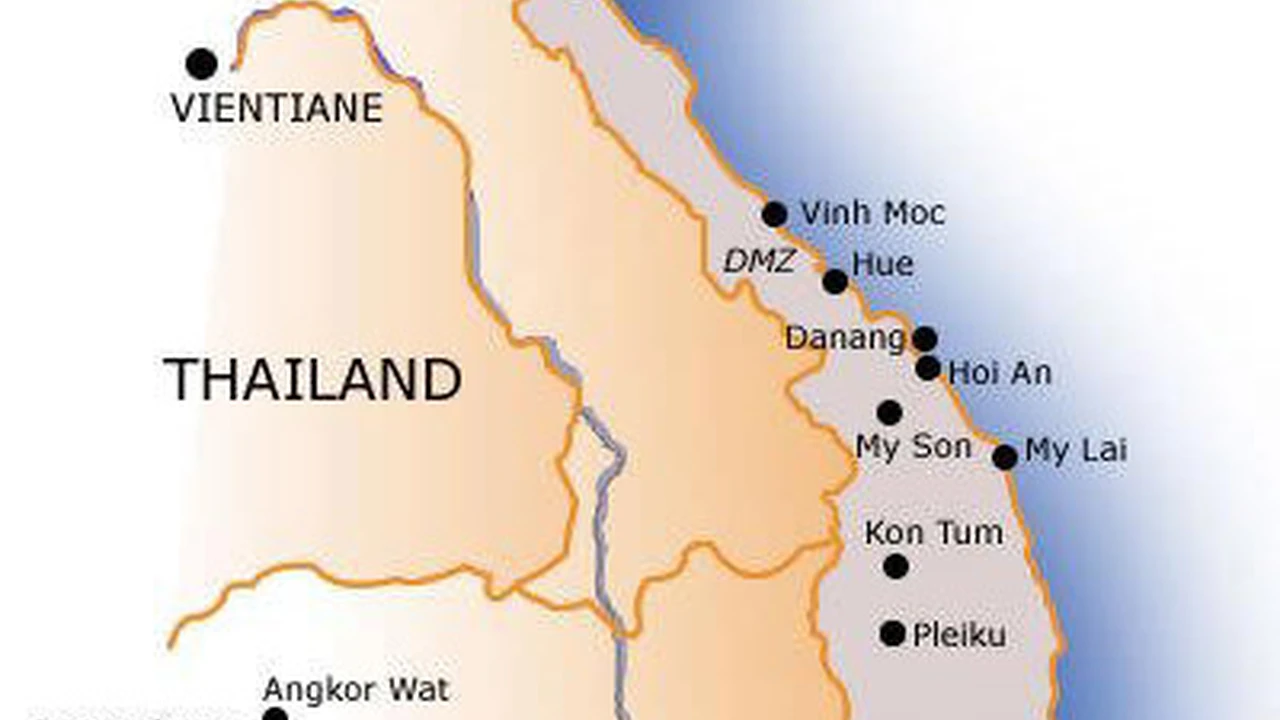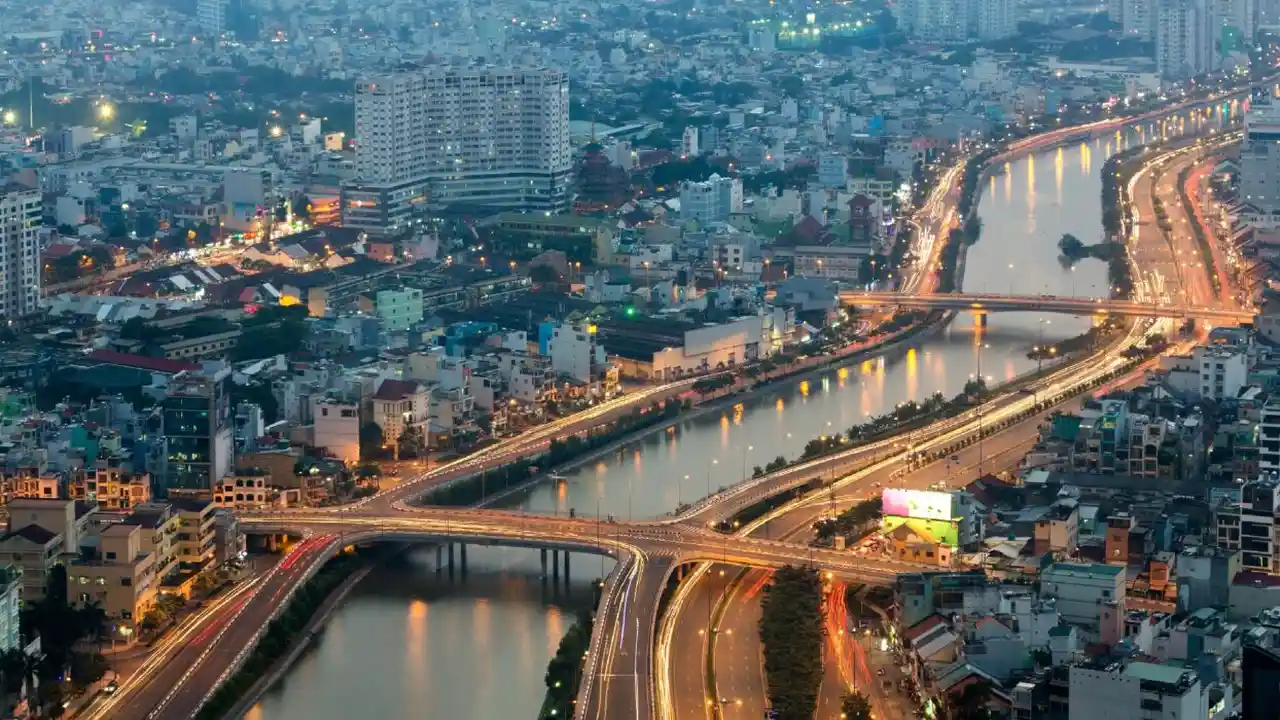Learning Vietnamese: Language Immersion Experiences

Why Immerse Yourself in Vietnamese Culture for Language Acquisition
So, you're thinking about learning Vietnamese? Awesome choice! It's a beautiful language, and Vietnam is an incredibly vibrant country. But let's be real, textbooks and apps can only take you so far. If you really want to level up your Vietnamese, nothing beats a full-on immersion experience. Think of it as diving headfirst into a pool of pho and karaoke – exhilarating, maybe a little overwhelming at first, but ultimately incredibly rewarding.
Why is immersion so effective? Well, it's all about forcing your brain to adapt. You're surrounded by the language, constantly hearing it, reading it, and trying to speak it. You're forced to think in Vietnamese, which is a huge leap from simply translating in your head. Plus, you're learning about the culture firsthand, which gives you a deeper understanding of the language and its nuances. You'll pick up slang, idioms, and cultural references that you'd never find in a textbook.
Choosing the Right Vietnamese Language Immersion Program: Factors to Consider
Okay, so you're sold on immersion. Now comes the fun part: choosing the right program. There are tons of options out there, from intensive language schools to homestays with local families. Here's what to keep in mind:
* **Your Budget:** Immersion programs can range from budget-friendly to downright luxurious. Consider how much you're willing to spend on tuition, accommodation, food, and activities. * **Your Learning Style:** Do you thrive in a structured classroom environment, or do you prefer a more relaxed, informal setting? Some programs are heavily focused on grammar and vocabulary, while others emphasize conversation and cultural experiences. * **Your Level of Vietnamese:** Are you a complete beginner, or do you already have some basic knowledge of the language? Choose a program that's appropriate for your skill level. * **Location, Location, Location:** Vietnam is a diverse country, with different regions offering different experiences. Do you want to be in a bustling city like Hanoi or Ho Chi Minh City, or would you prefer a more laid-back beach town like Hoi An or Nha Trang? * **Accommodation Options:** Would you prefer to stay in a hotel, a guesthouse, or a homestay? A homestay can be a great way to immerse yourself in the local culture and practice your Vietnamese with a family. * **Program Duration:** How long can you realistically commit to an immersion program? Options range from a few weeks to several months.Top Vietnamese Language Schools Offering Immersive Courses for Foreigners
Let's get down to specifics! Here are a few highly-rated Vietnamese language schools that offer immersive courses for foreigners:
* **Vietnamese Language Studies (VLS):** VLS has locations in Hanoi and Ho Chi Minh City and offers a range of courses for all levels. They focus on communicative language teaching, with an emphasis on speaking and listening skills. They also offer cultural activities like cooking classes and city tours. * **Tieng Viet Oi:** Located in Hanoi, Tieng Viet Oi is known for its small class sizes and personalized instruction. They offer intensive courses, private tutoring, and online lessons. * **Saigon Language Studies (SLS):** SLS is located in Ho Chi Minh City and offers a variety of courses, including intensive immersion programs, business Vietnamese, and Vietnamese for expats. They also offer visa support for students who want to stay in Vietnam for an extended period.Homestays in Vietnam: Living with a Local Family for Deeper Cultural Immersion
If you're looking for the ultimate immersion experience, consider staying with a local family. Homestays offer a unique opportunity to live like a local, practice your Vietnamese in a natural setting, and learn about Vietnamese culture firsthand. You'll share meals with the family, participate in daily activities, and get a glimpse into their everyday lives.
Finding a homestay can be a bit tricky, but there are a few resources you can use. You can ask your language school for recommendations, or you can search online for homestay agencies that specialize in Vietnam. Airbnb also lists some homestays, but be sure to read the reviews carefully before booking.
When choosing a homestay, consider your preferences and priorities. Do you want to stay with a family with young children, or would you prefer a quieter household? Do you have any dietary restrictions or allergies? Be sure to communicate your needs clearly to the family before you arrive.
Essential Vietnamese Language Learning Apps and Resources for Continued Practice
Even after your immersion program ends, it's important to continue practicing your Vietnamese. Fortunately, there are tons of great apps and resources available to help you stay on track.
* **Duolingo:** Duolingo is a popular language learning app that offers a free Vietnamese course. It's a great way to build your vocabulary and grammar skills. * **Memrise:** Memrise uses spaced repetition to help you memorize new words and phrases. It's a fun and engaging way to expand your vocabulary. * **Anki:** Anki is a flashcard app that allows you to create your own custom flashcards. It's a powerful tool for memorizing anything, including Vietnamese vocabulary and grammar rules. * **HelloTalk:** HelloTalk is a language exchange app that connects you with native Vietnamese speakers. You can chat with them, practice your speaking skills, and get feedback on your pronunciation. * **YouTube:** YouTube is a treasure trove of Vietnamese language learning resources. You can find videos on grammar, vocabulary, pronunciation, and culture.Product Recommendations for enhancing your Vietnamese learning journey
To make your Vietnamese learning even more effective and enjoyable, here are a few product recommendations along with their use cases, comparisons, and price ranges:
Anki Flashcards: A Powerful Tool for Vocabulary Retention
Use Case: Anki is a spaced repetition software that helps you learn and remember vocabulary, grammar rules, and even cultural nuances. You create flashcards with Vietnamese words, phrases, or sentences on one side and their definitions or translations on the other. The software then intelligently schedules when you should review each card based on how well you remember it.
Comparison: Unlike traditional paper flashcards, Anki adapts to your learning pace. It shows you the cards you struggle with more frequently, ensuring you focus on the areas where you need the most help. Compared to apps like Duolingo or Memrise, Anki offers greater customization and allows you to create flashcards tailored to your specific learning needs.
Price: Anki is free to use on computers and Android devices. There is a one-time fee for the iOS app (around $25), which supports the development of the software.
Pocketalk Language Translator: Instant Communication in Vietnam
Use Case: The Pocketalk is a handheld translator device that can instantly translate spoken words between Vietnamese and English (and many other languages). It's incredibly useful for communicating with locals when you don't know the Vietnamese word or phrase. Imagine ordering food, asking for directions, or negotiating prices at a market with ease!
Comparison: While smartphone translation apps like Google Translate are free, the Pocketalk offers several advantages. It has a dedicated microphone and speaker optimized for clear audio translation, even in noisy environments. It also doesn't require a constant internet connection (it comes with a built-in data plan or can connect to Wi-Fi). Compared to hiring a personal translator, the Pocketalk is a much more affordable option.
Price: The Pocketalk S model typically retails for around $299, while the Pocketalk Plus model is priced around $399.
Vietnamese Keyboard Stickers: Typing in Vietnamese Made Easy
Use Case: If you plan to type in Vietnamese on your computer or laptop, Vietnamese keyboard stickers are essential. They allow you to easily locate and type the Vietnamese characters and diacritics (tones) that are not found on a standard English keyboard. This is especially helpful for writing emails, participating in online forums, or creating Vietnamese language learning materials.
Comparison: While you can learn to type Vietnamese without stickers by memorizing the keyboard layout, stickers significantly speed up the process and reduce errors. They're a much more convenient and efficient solution.
Price: Vietnamese keyboard stickers are very affordable, typically costing between $5 and $10 on online marketplaces like Amazon.
"Lonely Planet Vietnamese Phrasebook & Dictionary": Your Pocket-Sized Language Companion
Use Case: A Vietnamese phrasebook and dictionary is an invaluable resource for travelers and language learners. It contains essential phrases for common situations, such as greetings, ordering food, asking for directions, and dealing with emergencies. It also includes a basic Vietnamese-English dictionary for quick lookups.
Comparison: While translation apps are useful, a phrasebook doesn't require an internet connection and provides pre-translated phrases that are often more accurate and culturally appropriate than machine translations. It's also a great way to learn basic grammar and vocabulary.
Price: The "Lonely Planet Vietnamese Phrasebook & Dictionary" typically costs around $10-15.
Audiobooks in Vietnamese: Immerse Yourself in the Sounds of the Language
Use Case: Listening to audiobooks in Vietnamese is a fantastic way to improve your listening comprehension, pronunciation, and vocabulary. Start with simple children's stories or graded readers and gradually progress to more complex material. You can listen to audiobooks while commuting, exercising, or doing chores, making it a convenient way to learn on the go.
Comparison: Unlike traditional textbooks or language learning apps, audiobooks provide a more natural and immersive learning experience. You'll hear the language spoken at a normal pace and learn to recognize different accents and speaking styles. You can also follow along with the text to improve your reading skills.
Price: The price of audiobooks in Vietnamese varies depending on the title and platform. You can find free audiobooks on YouTube or LibriVox, or purchase them from online retailers like Audible or Google Play Books.
Mastering Vietnamese Tones: Tips and Techniques for Accurate Pronunciation
One of the biggest challenges for learners of Vietnamese is mastering the tones. Vietnamese is a tonal language, which means that the meaning of a word can change depending on the tone used. There are six tones in Vietnamese, and they can be tricky to distinguish.
Here are a few tips and techniques for improving your pronunciation of Vietnamese tones:
* **Listen carefully:** Pay close attention to the way native speakers pronounce the tones. Try to mimic their pronunciation as closely as possible. * **Use visual aids:** There are many visual aids available online that can help you understand the different tones. Some resources use graphs or diagrams to represent the pitch and contour of each tone. * **Practice with a tutor:** A tutor can provide personalized feedback on your pronunciation and help you identify areas where you need to improve. * **Record yourself:** Record yourself speaking Vietnamese and compare your pronunciation to that of native speakers. This can help you identify areas where you're making mistakes. * **Be patient:** Mastering the tones takes time and practice. Don't get discouraged if you don't get it right away. Just keep practicing, and you'll eventually get there.Navigating Vietnamese Culture and Customs: Dos and Don'ts for a Respectful Immersion Experience
Learning Vietnamese isn't just about memorizing vocabulary and grammar rules. It's also about understanding the culture and customs of Vietnam. By learning about Vietnamese culture, you can avoid making cultural faux pas and build stronger relationships with locals.
Here are a few dos and don'ts to keep in mind when immersing yourself in Vietnamese culture:
* **Do:** Greet people with a slight bow and a "xin chào" (hello). * **Do:** Remove your shoes before entering someone's home. * **Do:** Dress modestly, especially when visiting temples or pagodas. * **Do:** Use both hands when giving or receiving something from someone older than you. * **Do:** Be respectful of elders and authority figures. * **Don't:** Point your finger at someone. * **Don't:** Touch someone's head, as it's considered the most sacred part of the body. * **Don't:** Show anger or frustration in public. * **Don't:** Speak loudly or aggressively. * **Don't:** Sit with your feet pointing towards an altar or a person of higher status.By following these tips, you can ensure that your immersion experience is respectful and enjoyable.
Beyond the Classroom: Exploring Vietnam and Practicing Your Vietnamese in Real-World Scenarios
The best way to improve your Vietnamese is to get out there and use it in real-world scenarios. Explore Vietnam, talk to locals, and immerse yourself in the culture. Here are a few ideas for practicing your Vietnamese outside the classroom:
* **Visit local markets:** Practice your bargaining skills and learn the names of different fruits, vegetables, and other products. * **Eat at local restaurants:** Order food in Vietnamese and chat with the staff. * **Take a cooking class:** Learn how to prepare traditional Vietnamese dishes and practice your vocabulary related to food and cooking. * **Visit historical sites and museums:** Learn about Vietnamese history and culture and practice your listening comprehension. * **Attend cultural events:** Attend festivals, concerts, and other cultural events and practice your social skills. * **Volunteer:** Volunteer at a local organization and use your Vietnamese to help others.The more you use your Vietnamese in real-world situations, the more confident and fluent you'll become.
:max_bytes(150000):strip_icc()/277019-baked-pork-chops-with-cream-of-mushroom-soup-DDMFS-beauty-4x3-BG-7505-5762b731cf30447d9cbbbbbf387beafa.jpg)






